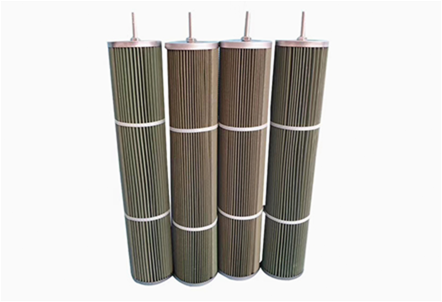 Tel:
+8615930870079
Tel:
+8615930870079
Dez . 12, 2024 10:16 Back to list
hepa cartridges
Understanding HEPA Cartridges Essential for Clean Air
In an age where air quality has become a significant concern for both health and environmental sustainability, HEPA (High-Efficiency Particulate Air) filters have emerged as a crucial component in many air purification systems. HEPA cartridges have gained a reputation for their capability to trap a vast range of airborne particles, including dust, pollen, pet dander, and even certain bacteria and viruses. But what exactly are HEPA cartridges, and why are they so important?
HEPA filters were initially developed during World War II to prevent radioactive particles from escaping into the environment. Today, they are recognized for their ability to filter out at least 99.97% of particles that are 0.3 microns in size. This high level of efficiency makes HEPA cartridges ideal for a variety of applications, from residential air purifiers to industrial vacuum cleaners and even in medical facilities.
Understanding HEPA Cartridges Essential for Clean Air
Moreover, HEPA cartridges contribute to a healthier living environment by capturing particles that can trigger allergies and other health issues. Allergens such as pollen and dust mites are common in households and can lead to various health complications if not adequately managed. HEPA filters can trap these particles, helping to alleviate symptoms and improve overall respiratory health.
hepa cartridges

In addition to domestic use, HEPA cartridges are integral in medical facilities. Hospitals and clinics utilize HEPA filters in their ventilation systems to maintain sterile environments and prevent the spread of infections. For instance, surgical theaters and isolation rooms are often equipped with HEPA filtration systems to ensure that the air quality meets stringent health standards. The ability of HEPA filters to eliminate pathogens plays a vital role in controlling hospital-acquired infections, thereby protecting both patients and healthcare workers.
The longevity and maintenance of HEPA cartridges are also worth noting. These filters are typically designed to last anywhere from six months to a year, depending on usage and environmental conditions. Regular maintenance is essential to ensure optimal performance. This usually involves checking and replacing the filters as necessary to maintain their efficiency. Users should refer to the manufacturer's guidelines for specific cleaning and replacement schedules to achieve the best results.
Despite their numerous advantages, it is important to note that HEPA cartridges are not foolproof solutions for all air quality issues. While they are highly effective against particulates, they do not capture gases or odors. Therefore, additional filtration systems, such as activated carbon filters, may be necessary for comprehensive air purification.
In summary, HEPA cartridges are an essential component of modern air purification systems, offering significant benefits for indoor air quality and public health. Their ability to capture nearly all airborne particles makes them indispensable for homes, healthcare facilities, and various industries. As we continue to confront air quality challenges, the adoption and understanding of HEPA technology will remain paramount in creating healthier environments for everyone. Embracing these advancements not only improves individual health but also contributes to the broader goal of reducing airborne pollutants in our shared airspace.
-
Nano Fiber Technology: Revolutionizing Cartridge Dust Collector FiltersNewsAug.06,2025
-
How Activated Carbon Air Cartridges Eliminate OdorsNewsAug.06,2025
-
Dust Filter Cartridge Handling Fine Particulate MatterNewsAug.06,2025
-
Cartridge Dust Collector Filter for Welding Fume ExtractionNewsAug.06,2025
-
Activated Carbon Filter Cartridge Effectiveness Against VOCsNewsAug.06,2025
-
Activated Carbon Air Filter Cartridge Benefits ExplainedNewsAug.06,2025

 Email:
Email:





